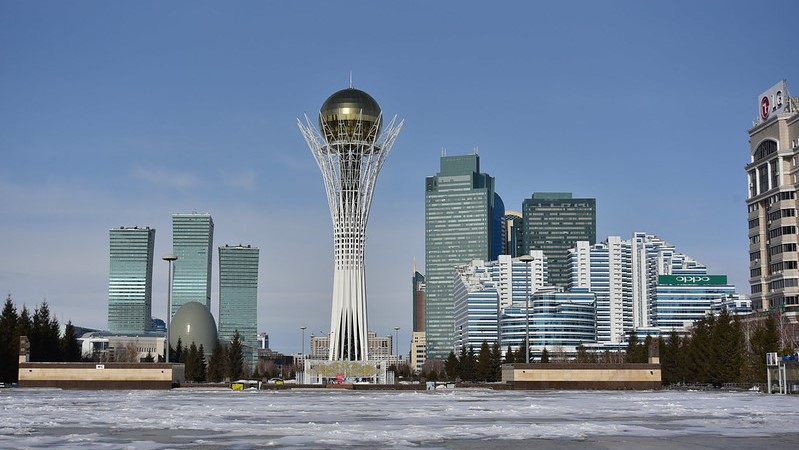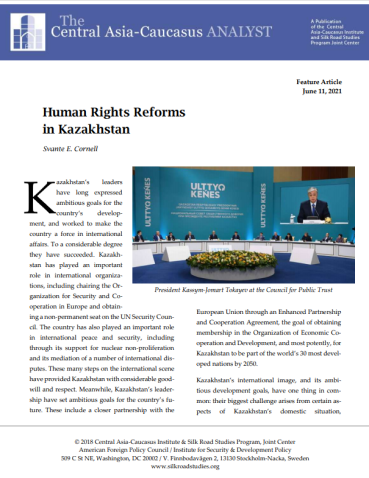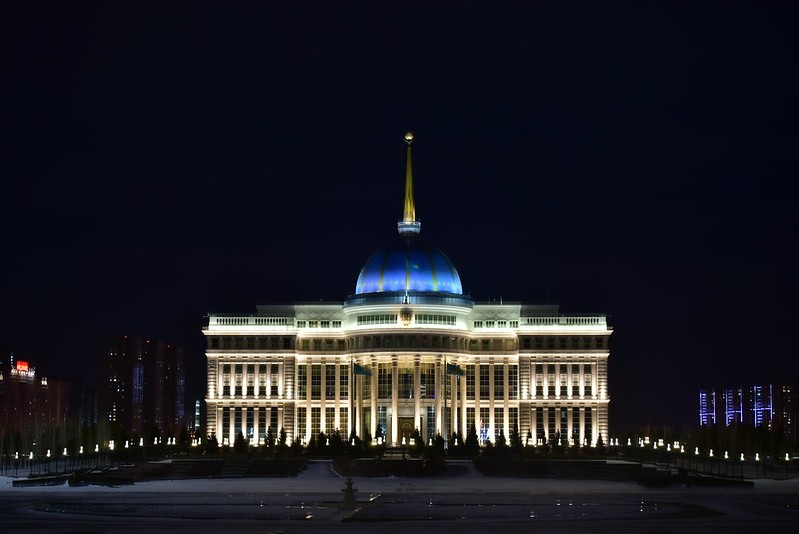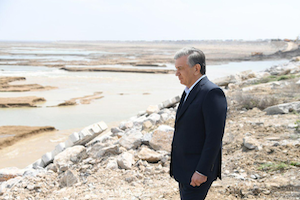Tokayev’s Reforms: An Evolutionary Model of Change?
Tokayev’s Reforms: An Evolutionary Model of Change?
By: Svante E. Cornell and Albert Barro
Much ink has been spilled in recent decades on the failures of democratization in the Middle East and Central Asia. Indeed, for over a decade and a half, Freedom House and other democracy watchdogs have been documenting a clear regression of dem-ocratic development. This has happened not only in countries considered in “transition”, but also in established democracies, where authoritarian tendencies have, unexpectedly, returned.
The Middle East and Central Asia have proven particularly resistant to democratic development. The resilience of authoritarian systems of govern-ment in these regions caused considerable frustra-tion, which switched to great excitement when popular revolutions against corrupt and dysfunc-tional government took place between 2003 and 2011. The wave of revolutions began in Georgia, followed by Ukraine and Kyrgyzstan, upheavals quickly dubbed “color revolutions.” These were followed several years later by the 2011 “Arab spring”, which similarly generated great hope that democracy had finally come to the Middle East.
Except it did not work out that way. The color revolutions and Arab upheavals must now be termed a failure, as no country that experienced these upheavals has progressed in a sustainable way toward democracy. Some, like Libya, Syria and Yemen have descended into civil war. Others, like Ukraine and Kyrgyzstan, experienced recur-rent political crises while continuing to be mired in corruption. For some time, Georgia and Tunisia appeared to go against the grain, and make sus-tained progress – but in recent years, those two have also backtracked. All in all, it seems clear that revolution is not a sustainable model to change entrenched authoritarian habits.
Kazakhstan, Distancing from Russia, Courts Ethnic Russians
By Dmitry Shlapentokh
September 13, 2021, the CACI Analyst
Kazakhstan is undergoing several contradictory processes that superficially seem disconnected. Relations between Astana and Moscow have worsened visibly, despite the fact that both countries are members of the Eurasian Economic Union (EEU). Influential Russian Duma deputy Viacheslav Nikonov has insisted that Kazakhstan is actually an artificial state created by the Soviet regime. According to Nikonov, the northern part of the country, with a large number of ethnic Russians and/or Russian-speakers, is actually part of Siberia and was an unlawfully given to Kazakhstan. Kazakh authorities rejected these statements and arrested Ermek Taichibekov, an ethnic Kazakh intellectual who has advocated close ties with Russia. Simultaneously, while increasingly hostile to Russia, members of the Kazakh political elite have sought to forge a reconciliatory message, wrapped in historical allusions, to Kazakhstan’s Russians in support of their peaceful assimilation.

Human Rights Reform in Kazakhstan
Human Rights Reform in Kazakhstan
By: Svante E. Cornell
Kazakhstan’s leaders have long expressed ambitious goals for the country’s development, and worked to make the country a force in international affairs. To a considerable degree they have succeeded. Kazakhstan has played an important role in international organizations, including chairing the Organization for Security and Cooperation in Europe and obtaining a non-permanent seat on the UN Security Council. The country has also played an important role in international peace and security, including through its support for nuclear non-proliferation and its mediation of a number of international disputes. These many steps on the international scene have provided Kazakhstan with considerable goodwill and respect. Meanwhile, Kazakhstan’s leadership have set ambitious goals for the country’s future. These include a closer partnership with the European Union through an Enhanced Partnership and Cooperation Agreement, the goal of obtaining membership in the Organization of Economic Cooperation and Development, and most potently, for Kazakhstan to be part of the world’s 30 most developed nations by 2050.
goals for the country’s development, and worked to make the country a force in international affairs. To a considerable degree they have succeeded. Kazakhstan has played an important role in international organizations, including chairing the Organization for Security and Cooperation in Europe and obtaining a non-permanent seat on the UN Security Council. The country has also played an important role in international peace and security, including through its support for nuclear non-proliferation and its mediation of a number of international disputes. These many steps on the international scene have provided Kazakhstan with considerable goodwill and respect. Meanwhile, Kazakhstan’s leadership have set ambitious goals for the country’s future. These include a closer partnership with the European Union through an Enhanced Partnership and Cooperation Agreement, the goal of obtaining membership in the Organization of Economic Cooperation and Development, and most potently, for Kazakhstan to be part of the world’s 30 most developed nations by 2050.
Kazakhstan’s international image, and its ambitious development goals, have one thing in common: their biggest challenge arises from certain aspects of Kazakhstan’s domestic situation, particularly those relating to individual rights and freedoms. As became clear during Kazakhstan’s candidacy for the OSCE chairmanship, international concerns regarding individual rights and freedoms in the country constituted a significant challenge that led to reservations from influential member countries and, fairly or not, delayed Kazakhstan’s chairmanship. More broadly, while Kazakhstan’s contributions to international peace and security are widely recognized, criticism concerning human rights issues in the country continue to emerge both from partner governments, international organizations, and non-governmental bodies.
Managing Strategic Competition: Kazakhstan's Peacemaking Initiatives
By Svante E. Cornell and S. Frederick Starr
December 22, 2020, the CACI Analyst
In recent years, the security situation on the Eurasian continent has grown increasingly unstable. Great powers are less constrained by international norms and institutions, undermining peace and security from Crimea in the West to Xinjiang in the East. This poses a serious challenge to the states of Central Asia, caught in the center of the continent. Some, and particularly Kazakhstan, have responded by growing international activism – not least by contributing to the management and resolution of the conflicts and controversies that could affect their security. That makes these states natural partners for the United States and Europe.

Border Problems in Central Asia: Dividing Incidents, Uniting Solution
By Farkhod Tolipov
July 16, 2020, the CACI Analyst
In May-June 2020, Central Asia experienced several border incidents between Uzbekistan and Kazakhstan; Uzbekistan and Kyrgyzstan; Kyrgyzstan and Tajikistan. These incidents revealed once again, on the one hand, the local population’s transboundary lifestyle and on the other, the artificial character of the borders that separate independent states from each other. Similar incidents have recurred in the region with a certain frequency since gaining independence; however, none of them escalated into larger and dangerous conflicts since resolutions came quickly and were based on unique integrative arrangements.




